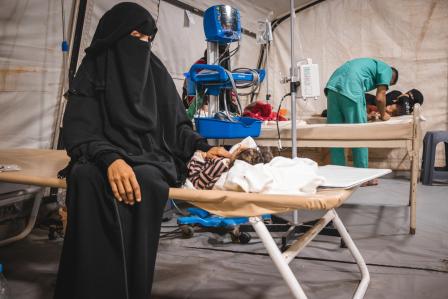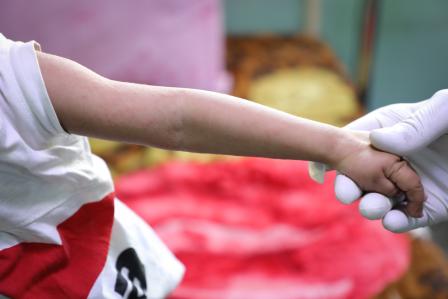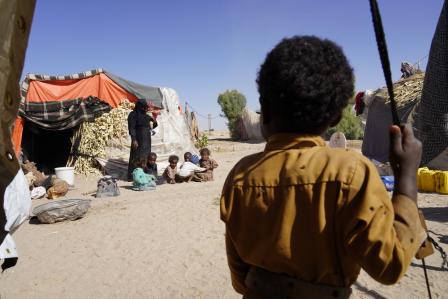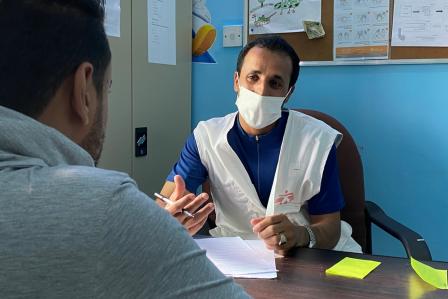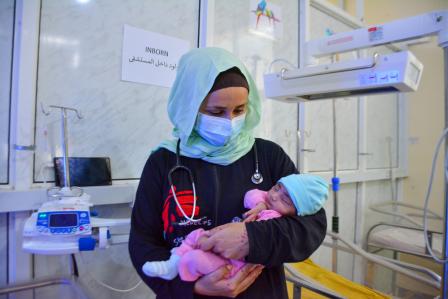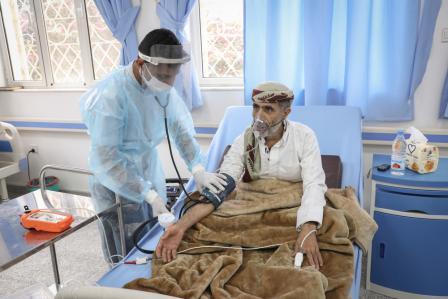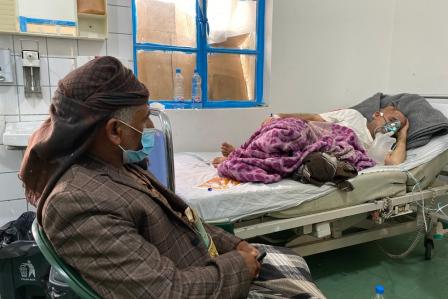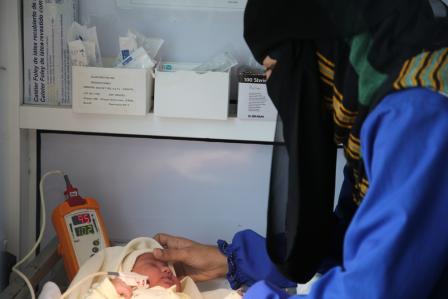Yemen: Doctors Without Borders deeply concerned over civilians affected by conflict in Marib
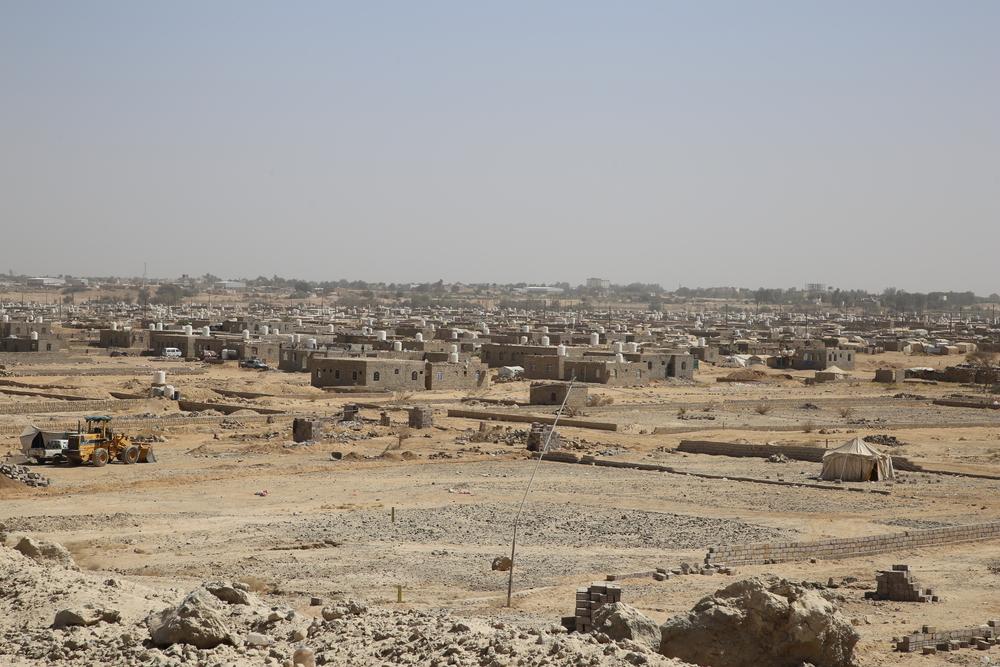
View of Al Noor camp, one of the largest camps in Marib. Yemen, 2021. © Nuha Haider/MSF
Missile attacks in the residential area of Rawdah Jadidah in Marib governorate on Sunday 3 October, have injured multiple civilians, and killed at least four people, including two young children. Doctors Without Borders staff working in the emergency department of Marib General Hospital, in conjunction with other hospital staff, treated 14 people; eight of whom were in a critical condition, while four arrived at the hospital deceased.
Almost all patients received at the hospital were civilians, including women and children. Doctors Without Borders teams received two children who died of their injuries. Among the injured Doctors Without Borders treated were a pregnant woman with the blast injures to her chest, a child with multiple shrapnel wounds, and a two-month-old baby with a traumatic brain injury. The pregnant woman and baby were later transferred to another hospital, that specialises in maternity and paediatric care, for further treatment.
Doctors Without Borders is deeply concerned over impact of the recent clashes in Marib Governorate on civilians. After nearly seven years of conflict, yesterday’s missile attacks are yet another example of the appalling effects of the conflict on the population of Yemen. We strongly urge the warring parties to avoid any civilian injuries or deaths during the ongoing clashes in Marib as well as in future.Allen Murphy, Project Coordinator
Marib is witnessing a new intense wave of conflict in the city and surroundings recently. Over the past two weeks, the Marib General Hospital has received hundreds of war-wounded patients, including civilians. Doctors Without Borders calls on the warring parties to respect International Humanitarian Law that ensures the safety of civilians during conflict.
Before the start of the conflict, Marib was home to almost 400,000 people, according to local authorities. Now, it hosts nearly 2.7 million people, including internally displaced people from elsewhere and many who have been displaced on several occasions. The recent escalation of violence could risk forcing more people into displacement and increase the already unmet humanitarian needs in terms of shelter, food, water, protection and healthcare.
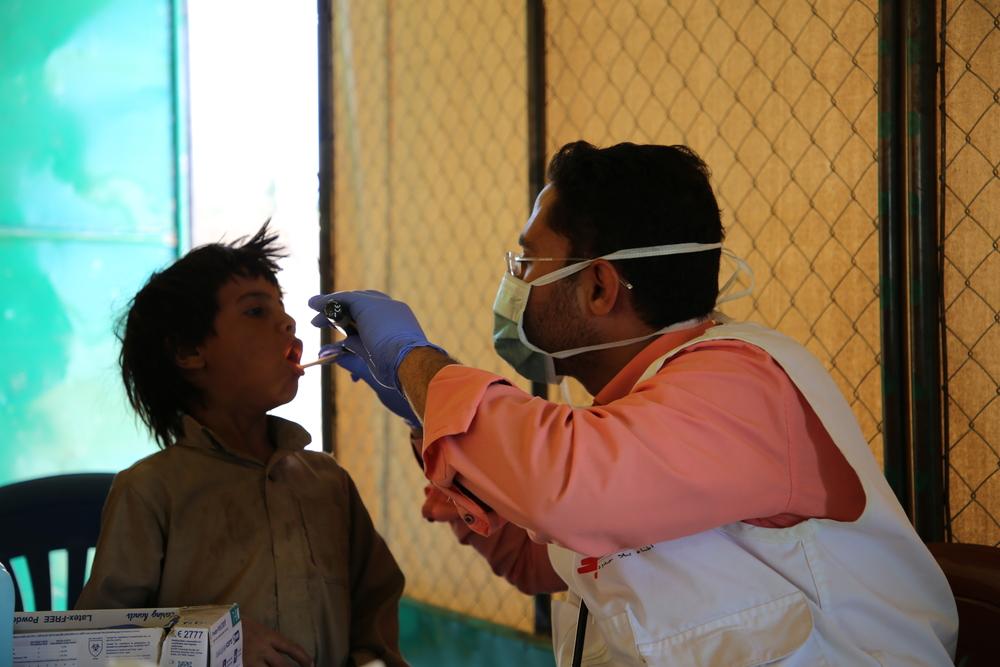
A Doctors Without Borders' doctor doing a checkup on patient at Sabran camp in Marib. Doctors Without Borders providing primary healthcare through mobile clinics targeting IDPs, migrants, marginalised and minority group that suffers discrimination and social exclusion in Yemen. Yemen, 2021. © Nuha Haider/MSF
Doctors Without Borders has been supporting Marib General Hospital in its emergency room since April 2021. We support the hospital with medical staff including doctors, nurses, and a surgeon. Doctors Without Borders also runs mobile clinics covering a total of eight locations in Marib to provide primary healthcare services to internally displaced people, migrants and muhamasheen community.
Doctors Without Borders first started working in Yemen in 1986, and has been present in the country continuously since 2007. Doctors Without Borders teams work in 11 hospitals and provides support to another 16 health facilities across 13 governorates. All of Doctors Without Borders services in Yemen are supported by private donations without any contribution from any government or donor institution.
